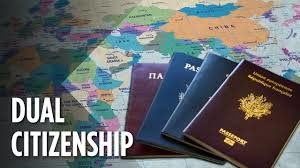
introduction:
Dual citizenship allows individuals to hold citizenship in more than one country simultaneously. For many people, it offers the flexibility to live, work, and travel across borders while retaining ties to their home country. In Nigeria, the laws surrounding dual nationality can be complex and vary depending on the circumstances of the applicant. This guide provides an overview of how to obtain dual citizenship in Nigeria, outlining the legal framework, eligibility criteria, application process, and key considerations.
Understanding Dual Citizenship in Nigeria
Under the Nigerian Constitution, dual citizenship is recognized for specific categories of individuals. The 1999 Constitution of Nigeria provides that:
- Nigerian Citizens by Birth: Individuals born in Nigeria or to Nigerian parents, regardless of their nationality, can hold dual citizenship. This category allows Nigerians who acquire another nationality to retain their Nigerian citizenship.
- Naturalized Citizens: Foreigners who have acquired Nigerian citizenship through naturalization are not permitted to hold dual citizenship. If they acquire the citizenship of another country, they automatically lose their Nigerian citizenship.
- Citizenship by Registration: Individuals of Nigerian descent who acquire citizenship by registration (e.g., through marriage to a Nigerian citizen) may also be eligible for dual citizenship.
Eligibility Criteria for Dual Citizenship
To qualify for dual citizenship in Nigeria, you must meet the following criteria:
- Nigerian Citizenship by Birth: You must be a Nigerian citizen by birth, meaning you were born in Nigeria or to Nigerian parents.
- Acquisition of Another Citizenship: You must have legally acquired another nationality from a different country.
- Good Character: You should possess good character and not have any legal issues that could impede your application for citizenship.
- Compliance with Nigerian Laws: You must comply with all Nigerian laws and regulations related to citizenship and residency.
Application Process for Dual Citizenship
Gather Required Documents
To apply for dual citizenship in Nigeria, you will need to collect and prepare the following documents:
Birth Certificate: Proof of your birth in Nigeria or to Nigerian parents.
Foreign Citizenship Certificate: Documentation proving your acquisition of citizenship in another country.
Valid Passport: Your current Nigerian passport and the passport of the foreign country.
Application Form: Complete the appropriate application form for dual citizenship, which can be obtained from the Nigerian Immigration Service (NIS) or relevant government agency.
Photographs: Recent passport-sized photographs as specified by the application guidelines.
Other Supporting Documents: Any additional documentation required by the NIS or relevant authorities.
2. Submit the Application
Once you have gathered all necessary documents, submit your dual citizenship application to the Nigerian Immigration Service or the relevant government office. Ensure that you include all required documents to avoid delays.
3. Pay the Application Fee
There is usually an application fee associated with processing the dual citizenship application. Check with the NIS or relevant government office for the specific fee amount and payment methods.
4. Await Processing
After submission, your application will undergo a review process. The duration for processing dual citizenship applications may vary, so it’s essential to remain patient and follow up if necessary.
5. Receive Decision
Once your application is processed, you will receive a notification regarding the decision. If approved, you will be issued a certificate of dual citizenship.
Key Considerations
- Legal Advice: Given the complexities of citizenship laws, it is advisable to seek legal counsel from a qualified immigration lawyer or legal expert familiar with Nigerian citizenship laws. They can provide guidance throughout the application process and address any concerns.
- Retention of Nigerian Citizenship: As a dual citizen, you are expected to comply with Nigerian laws. Failure to do so may result in the loss of your Nigerian citizenship.
- Impact on Foreign Citizenship: Some countries have restrictions on dual citizenship. Before applying for dual citizenship in Nigeria, ensure that your other country allows dual nationality and understand any implications it may have on your rights and obligations.
- Potential Changes in Law: Citizenship laws can change over time. Stay informed about any updates or amendments to Nigerian citizenship laws that may affect your status.
Conclusion
Obtaining dual citizenship in Nigeria can provide significant benefits, including the ability to live, work, and travel freely between two countries. Understanding the legal framework and following the appropriate application process is crucial to ensure a successful outcome.
Contact Us
For premier legal research services in litigation cases in Nigeria, contact Chaman Law Firm today. Our offices are conveniently located in Lagos, FCT Abuja, Ogun State, and the UK. We are readily available to assist you with your legal needs. Whether you require consultation, representation, or ongoing legal support, Chaman Law Firmhttps://www.chamanlawfirm.com/about-us/ is your trusted partner in navigating legal reseach law in Nigeria.
Call us at 08065553671 or email us at info@chamanlawfirm.com to schedule a consultation.
- Birthright Citizenship
- Naturalization
- Descent or Ancestry
- Marriage to a Foreign National
- Investment or Economic Citizenship

